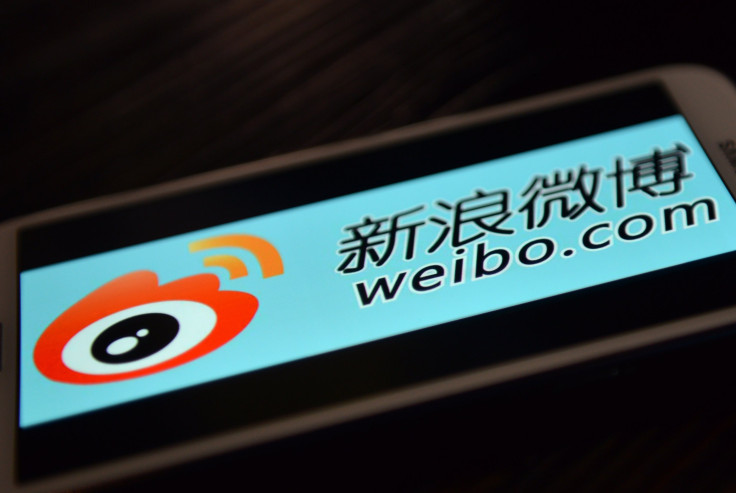Weibo To America: Please Stop Calling Us The 'Chinese Twitter'

Weibo has long been referred to in the U.S. as the "Chinese Twitter," but Ken Hong, general manager for Weibo Corp. Marketing Strategy, said that's not an accurate description. "This definition is no longer acceptable. It's a simple way to get a sense of what Weibo is, but it's evolved so much."
Pronounced "way-baw," the company is one of the largest mobile social-media platforms in the world, serving one of the most Internet-savvy mobile-centric markets out there: China. For every mobile phone sold in the U.S., six are sold in China. The country presently has some 632 million people online to the United States' 300 million, and its $2 trillion in annual e-commerce transactions completely dwarfs the United States' own $224 billion.
It certainly bears mentioning that Weibo had a "buy" button (now facilitated by Alipay) for people to purchase various products well before Twitter did, and this makes Weibo a social media powerhouse for brands looking to sell products and interact with their customers on the same platform.
Another big difference between Weibo and Twitter: A 140-character post on Weibo is like 500 words in English.
Speaking at the Interactive Advertising Bureau's conference in New York City, Mr. Hong emphasized that it's important for brands to "be Chinese." This is not to say that they should be China-based companies, but that they interact with customers at the Chinese level. If you want to do this, you "should be in the know with trending topics," said Hong. "Want to know what Chinese people are talking about? Look up hot topics on Weibo."
The recent IPO of China's e-commerce giant Alibaba dramatically underscores the country's economic success. "There are two elements propelling China's economy forward," said Hong. "The first is its demanding consumers. They want love, they want gifts, they want to be educated. They're not unlike babies. The second is the aggressive brands doing everything they can to feed them."
As Weibo makes a perfect tool to connect the two entities, it is uniquely positioned to become more and more globally relevant. We caught up with Mr. Hong for more on this distinctive social network.
INTERNATIONAL BUSINESS TIMES: Is Weibo something that Americans and American companies should be using?
KEN HONG: There are a lot of American companies using it. A lot of American celebrities — movie stars, athletes. Oftentimes, they'll link their Twitter accounts to simultaneously broadcast things on Weibo in English as well. As regular consumers, most of the content would be in Chinese. You can still register and open an account and make posts in English, there is nothing stopping you from doing that. We see more and more of this. The prime minister of the U.K. is on it. If you want to reach a Chinese audience and create influence, Weibo is for you, yes.
IBT: What's the biggest lesson American companies can learn from Chinese companies about how to engage with their customers online?
KH: They're not aggressive enough in the sense of embracing their fans. You need to stay closer to your fans and lower yourself, in a sense of not creating a hierarchy of just being a brand talking to its fans. Say things to the consumer the way they want to be talked to, give them real benefits, tangible products. Chinese consumers are very practical in that sense.
IBT: When did Alipay come into the picture?
KH: About four or five months ago. Before that we developed a proprietary online payment system that's still in use, but Alipay is obviously the No. 1 online payment choice in China, and because we have a partnership with them, it's natural for us to want to do that together.
IBT: What's the future hold for Weibo?
KH: There's a lot of exciting stuff. Our priority is still to grow the user base, to get everyone more engaged, more "sticky." I think at the same time you can see we're launching a lot of these brands, so we believe Weibo is the most effective social-media marketing platform in China. There are some other social-media platforms, but we don't feel they provide as many choices as we do. We want to commercialize the platform as well, but while striking the balance between user experience and commercialization of the platform.
© Copyright IBTimes 2024. All rights reserved.





















